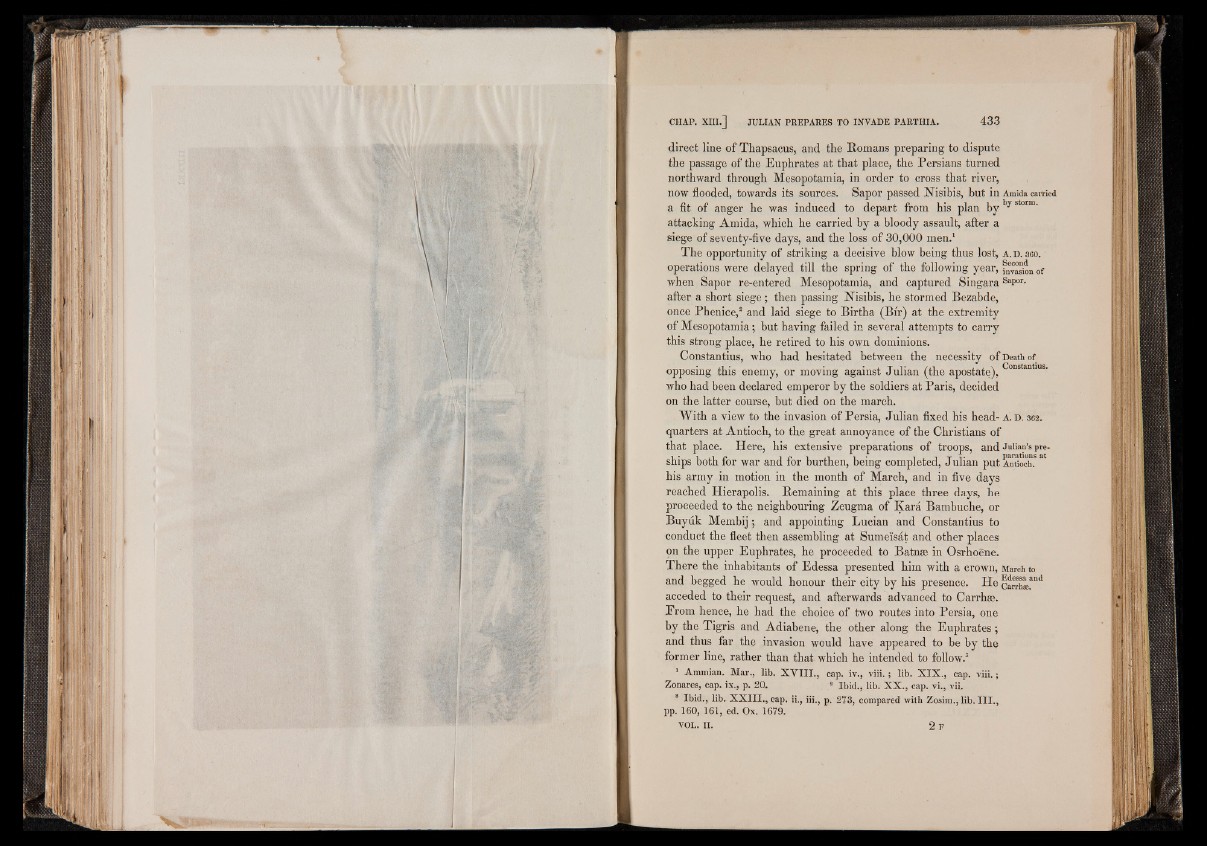
I
I
direct line of Thapsacus, and the Romans preparing to dispute
the passage of the Euphrates at that place, the Persians turned
northward through Mesopotamia, in order to cross that river,
now flooded, towards its sources. Sapor passed Nisibis, but in Amida carried
a fit of anger he was induced to depart from his plan by y stormattacking
Amida, which he carried by a bloody assault, after a
siege of seventy-five days, and the loss of 30,000 men.1
The opportunity of striking a decisive blow being thus lost, a.d. 3co.
operations were delayed till the spring of the following year, fusion of
when Sapor re-entered Mesopotamia, and captured Singara
after a short siege; then passing JSTisibis, he stormed Bezabde,
once Phenice,2 and laid siege to Birtha (Bir) at the extremity
of Mesopotamia; but having failed in several attempts to carry
this strong place, he retired to his own dominions.
Constantius, who had hesitated between the necessity of Death of
opposing this enemy, or moving against Julian (the apostate), Constantms-
who had been declared emperor by the soldiers at Paris, decided
on the latter course, but died on the march.
With a view to the invasion of Persia, Julian fixed his head- A. d. 362.
quarters at Antioch, to the great annoyance of the Christians of
that place. Here, his extensive preparations of troops, and Julian’s preships
both for war and for burthen, being completed, Julian put Antioch.8 **
his army in motion in the month of March, and in five days
reached Hierapolis. Remaining at this place three days, he
proceeded to the neighbouring Zeugma of Kara Bambuche, or
Buyuk Membij; and appointing Lucian and Constantius to
conduct the fleet then assembling at Sumeisat and other places
on the upper Euphrates, he proceeded to Bata® in Osrhoene.
There the inhabitants of Edessa presented him with a crown, March to
and begged he would honour their city by his presence. He ^ ) ^ and
acceded to their request, and afterwards advanced to Carrhse.
Erom hence, he had the choice of two routes into Persia, one
by the Tigris and Adiabene, the other along the Euphrates;
and thus far the invasion would have appeared to be by the
former line, rather than that which he intended to follow.3
1 Ammian. Mar., lib. X V I I I ., cap. iv., viii. ; lib. X IX ., cap. v iii.;
Zonares, cap. ix., p. 20. a Ibid., lib. X X ., cap. vi., vii.
8 Ibid., lib. X X I I I ., cap. ii., iii., p. 273, compared with Zosim., lib. I I I . ,
pp. 160, 161, ed. Ox. 1679.